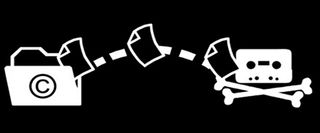Top Misconceptions About The Gaming Industry

You know how you hear all sorts of stuff about the gaming industry, from inflation to development costs, and the actual role of a publisher in making a game? Well, all that jargon finally gets put into its place as we cover the top misconceptions about the gaming industry.
This is probably one of the most common misconceptions about any industry, but oftentimes you have people quoting a PR response from a representative as if it marks the complete and absolute truth regarding a matter. The reality is that a PR response is just to "Protect Resources" and not necessarily for public relations or to be friendly and helpful.
Oftentimes PR responses are used for the ubiquitous term, "damage control", which once again ties into "Protecting Resources". It's more about the public image of a company and saying whatever needs to be said or doing whatever needs to be done to keep that image from being tarnished or blemished from a leak, a lie, a mistake or a blatant attempt at gouging consumers.
The only time you'll ever get the straight truth from a PR rep regarding a damaging or potentially unflattering business situation is when the company is small and they have a good rapport with their close-knit community or niche audience. Never expect this kind of treatment from a multi-billion dollar corporation.

2.) Publishers Don't Make Enough Money
A very simple misconception. Yes, many publishers do make enough money, whether it's for new games, small games, big games, ugly games or pretty games. To put this into perspective, Electronic Arts' Battlefield 3, in 2011 alone, topped 10 million in sales [via USA Today]. While the specifics of limited editions, collector editions and special editions weren't enumerated, using the base $60 entry fee for the game, you could technically reproduce Gears of War from the ground up sixty-times over. Yes, Battlefield 3 made that much money, alone.
CINEMABLEND NEWSLETTER
Your Daily Blend of Entertainment News
To give you further perspective, Electronic Arts estimates 2012's year-end revenue to top $4.2 billion [via Seeking Alpha]. And just for further reference, Activision's 2011 performance yielded them $4.76 billion, up from the previous year's $4.45 billion [via Variety]. Zynga, the casual games company, posted more than $1 billion in profits throughout 2011. Nexon also recorded $1 billion in revenue throughout 2011 with an estimated company worth of $7 billion US dollars [via MSUpdate]. Publishers don't make enough money? Right.

3.) The Industry Is Dying
This is a weird misconception about the gaming industry. I'm not really sure where this stems from but every once in a while people will comment about the gaming industry dying if gamers don't support X game from Y publisher. The truth of the matter is that while the gaming industry has its financial quarterly faults and fumbles, the industry as a whole continues to grow exponentially each year, especially in the online and casual markets.
The retail market in North America alone is still booming, making more than the music and movie industry combined. There's also the estimates that gaming overall will be worth close to $100 billion dollars by 2014. The PC gaming market alone has exceeded $18.6 billion in 2011, showing that the industry is doing anything but dying.
Also take note that most studios that go into Administration, file bankruptcy and close down either mismanaged poorly (i.e., Realtime Worlds) or have usually been attached to larger publishing studios who are either trying to cut operating costs or make up for a game that may have under-performed, but it has nothing to do with the "industry dying". In fact, the indie market is growing quite expediently and the free-to-play, casual and online sectors are bringing in millions of new gamers each month.

4.) Used Game Sales Hurt The Developers
This is a common misconception spread around to incite fear into gamers to only buy new and not used. The truth of the matter is that buying used or new doesn't affect developers directly as much as gamers are led to believe. That's right, buying new doesn't help a developer anymore than buying used. A good example of this is Blur, where even more than a million unit sales didn't stop Activision from shutting down Bizzare Creations. More than half a billion in revenue in Q3 2011 [via Venture Beat] also didn't stop Blizzard from recently laying off 600 employees, and that last example had nothing to do with used game sales.
Take note that buying a game used hurts a publisher more than a developer but buying new always helps the publisher because when new copies sellout retailers will have to order more copies, thus increasing recorded sales figures for the publisher, and sometimes resulting in developer royalties. The other reason publishers want gamers to buy new has more to do with strengthening their portfolio, since new sales help with both post-launch marketing and annual profit margins, and used sales don't. However, there are programs from some used game outlets that help send money from used game sales directly to developers, such as Switch Games. So it's not as evil as most industry folk would lead you to believe.
Nevertheless, the real issue stems from publishers simply wanting more from the used market, in result the community is fed the misconception that buying used hurts developers. Hence, the reason why there are online passes and the rising trend of disc-locked content. This only seems to be an issue with publishing video games because movie, music and book publishers have yet to implement an equivalent to disc-locked content or DRM for second hand sales.

5.) Piracy Is Killing PC Gaming
The link above about PC raking in $18.6 billion provides all the info you need. But to further clarify, the huge misconception being spread throughout the industry (by big publishers, nonetheless) is that they can't make exclusive games for the PC audience due to piracy. It's sad because a lot of people actually believe this misconception.
There are plenty of exclusive PC studios that have prospered without resorting to draconian DRM methods or punishing paying consumers due to the rise in piracy. CD Projekt, Mojang and Good Old Games are just a few of the many companies out there that try to practice consumer-first policies, focusing more on providing a good product as opposed to "protecting resources" or investments.
Speaking of investments...the real reason that there is such a huge anti-piracy campaign has more to do with investors and shareholders than the actual developers. Having a game pirated more than a million times leads uninformed shareholders to believe that they just lost a million potential sell-throughs, which could ultimately hurt the bottom line, which leads to lower profit margins. That is a complete fallacy.
Removing piracy as a variable to the sales equation does not translate to a guaranteed sale. Nevertheless, publishers institute the safe practice of DRM to appease shareholders as a way to protect assets, even though all DRM really does is hurt legitimate PC consumers. Unfortunately, there isn't much gamers can do about this other than write the shareholders and have them read an article or two about software piracy. Yes, shareholders can get informed, too.

6.) Development Costs Are Rising
This here usually accompanies the line "Game prices haven't gone up in years, and with inflation gamers are getting a good deal." This is one of the most misinformed lines out there. Some game development costs have gone up while others have gone down. Development tools in particular (a crucial part for designing games) have gone down in price drastically, enabling just about any entry level designer to make a quality looking game.
Games like Limbo, Dungeon Defenders and MineCraft, popular titles these days with interesting gameplay concepts, were all budget priced titles, a game like Q.U.B.E. even managed to cost less than $100,000 to develop and distribute even though it uses advanced physics, lighting and some interaction effects. A title like this would have costs millions to develop ten years ago back during 2002 just because of the tools required to pull off some of the effects, which weren't available back then. For example, Sega spent $100 million developing Shenmue back in the early 2000s and completely failed to get a return on the investment. That's not to mention that console games back during the Sega and SNES era cost on average $1 million to produce. So as you can tell, there's no real fixed price to developing a game.
Of course, there are recent big budget titles like KillZone 2, which had a walloping $60 million dollar budget given that Guerrilla Games had to build the assets and engine from scratch [via Digital Battle], and the same thing happened with Grand Theft Auto IV which also supposedly had a massive $100 million dollar budget. These games are the rare exceptions, however, and most AAA titles average around $25 million. Added to this, game production still pales in comparison to most of Hollywood's big budget movies, especially Avatar's massive $280 million dollar budget.
Depending on the team and the skill and the tools will determine how much a game will cost, Halo 2 for example had a $20 million dollar budget, where-as Gears of War only had a paltry $10 million dollar budget. Costs vary per project. However, always assuming every game gets "more expensive to develop" just because a publisher says so or a new generation of gaming kicks into gear, is not true at all.

7.) Without DLC Publishers Don't Make Enough Money
Here's another big fat misconception. DLC is nothing more than a more lucrative alternative to this age old thing called an Expansion Pack. See, way back in the 90s expansion packs added anywhere between 10 and maybe 30 hours of gameplay depending on the game (shoutout to BioWare and the Tales of Sword Coast). And most expansion packs were limited to PCs. The concept has dwindled over the years to the point where instead of expanding on a popular game, content is released (nowadays in tandem) for a game to make extra profits. DLC is usually already in production alongside the main game itself (or in some cases, stripped from the main game).
Realistically, DLC is just an extra outlet to make extra money. Stuff that gamers usually unlocked through lots of hours of play during the PS2 era has become paid-for premium items in this 7th generation of console gaming. That super-uber special rifle? DLC. That fancy new outfit? DLC. That ultimate secret ending? DLC. Most popular titles sell quite well without it, such as Tekken 6 which didn't launch or contain any DLC but managed to sell several million copies across multiple platforms. Also, games like Super Mario Galaxy, Super Smash Bros., and even Dragon Ball Z games have managed quite the success without relying on DLC. This method of content deliver is not necessary to sustain a game's sales but it's mainly to pad profits.

8.) Day-One DLC Is Finished After Certification
This is one of the biggest misconceptions about the gaming industry that somehow developers are so pressed for time that they can only finish downloadable content well after a game goes gold but well before the game lands on retail shelves. This is a fallacy.
Day-one DLC is a pre-planned, drawn out process usually in production alongside the main content of the game. It all depends on the script, the layout of the game and the way the content is designed.
A good, bare-bones example of how a video game is designed and the workflow direction most developers use to follow when developing a game is over at David Midgley's Website (image is in the link). As you can see, if story DLC releases day and date with the game it's not something that comes after stuff like motion-capture, voice recording or mechanic implementation. It's going to be going through those phases at the same time as the rest of the content to maintain continuity. And it would be a waste of money and resources to have people come back in late in the development stage to do additional motion capture sessions or voice work. Sometimes it happens, but it's rare. Most studios want to ensure that they get all that stuff done together as much as possible and as soon as possible, very early on before a game even hits its alpha stage, because time is money, literally.
If a publisher says day-one DLC is designed after certification and any of that DLC contains audio work, motion-capture or design elements that would have been implemented with the rest of the game, then you're probably believing a lie.
Take note also that most games only require a few weeks between going gold (when development is done and complete) and landing on a retailer shelf. For instance, DBZ: Ultimate Tenkaichi goes gold, and two weeks later it's available. Batman: Arkham City goes gold and launches three weeks later. Deus Ex goes gold and a few weeks later lands on retailer shelves.
Now, realistically coding in new content, coming up with new assets and building new missions from scratch that ranges from 1- 5 hours of gameplay within a month's time and having it ready day and date for the game's release is hogwash. It isn't done that way nor could it be done that way based on the way resources are allocated.

9.) Without Publishers There Would Be No Games
This is the largest, most misconstrued misconception right here. People have gone over the haywire thinking that this is somehow true, when blatantly it is not, never has been nor could it ever be.
The thing a lot people tend to forget is that publishers are just middlemen, they don't design the game they just put up money for it, toss in some input and market the crap out of a game. The developers are the bread and butter of the industry and they will always be the talented folk behind artistic, creative, fun, action-packed, innovative and entertaining experiences. If you want to stand up and give your favorite dev an ovation, it's fine by me...they probably deserve it.
Publishers, alternatively, are the reason developers turn on gamers, gamers turn on developers, developers turn on developers and gamers turn on gamers. Anyone here reading this article believing many of the misconceptions above is probably misinformed because of the PR spiel of a AAA publisher (that's triple A in case you were wondering).
The truth is, the industry doesn't need publishers to sustain itself. Tim Schafer proved that developers and gamers can have a great connect without a publisher, and gaming media can market a project with the viral effect that most AAA publishers have to pay $20 plus million to achieve, or in EA's case $50 million. Red 5 Studios also mentioned that publishers just aren't meaningful to projects where developers and gamers can share a direct connection.
If a developer needs to crowd-source, they can, and guess what? Gamers can foot the bill the way they always have. Removing a publisher from the equation doesn't hurt the industry, although it could mean you wouldn't be receiving annual blockbuster iterations or copy-cat games with bi-monthly DLC campaigns...assuming you would miss that sort of thing.

10.) Gamers Act Entitled
This is probably one of the most annoying misconceptions out there. Gamers are the ones who fuel the industry, the ones who keep publishers running their milk machines and the ones who praise, criticize, cry, laugh, scream, and play the crap out of the products that have finally permeated mainstream pop-culture. Gamers act entitled? No, this is a misconception spread by more stealth PR spiel. Gamers are the ones who put all those billions of dollars into the banks for the aforementioned publishers at the top of the article.
There are trolls in the gaming industry, of course, just like there are trolls in any other media forum. However, gamers are an impassionate bunch who cling to the world of interactive entertainment like lifeblood. If you treat your fanbase right they'll reward you well with positive word of mouth and loyalty rivaled by nothing else. If you stay true to your creative vision then gamers will stay true to your product. And if you don't sellout the goal of providing a great product at a great value, gamers will continue to reward that with unfettered support.
However, if you attempt to content-gouge with DLC, nickel-and-dime with accessories and pivotal gameplay features, or extort by ransoming disc-locked content, endings, characters or what-have-you for some extra cheese, then expect that whine to follow.
Unlike the music or movie industry gamers don't have a reliable mainstream or collective subculture to speak on behalf of them. What comes off as "gamer entitlement" is basically gamers just trying to speak up for themselves and fight for a fair shake. Unfortunately, gamers don't have enough reliable outlets to fight on their behalf with nary just a few here and there to work as a vocal platform. In result, gamers flood forums, chatrooms, social networks and aggregators to whine, cry and voice their anger. In result, most people just see this as gamers acting entitled. The sad and unfortunate nature of the beast.
Want to learn more? Check out the Top Misconceptions about Movie Blogs.
Staff Writer at CinemaBlend.
Most Popular




